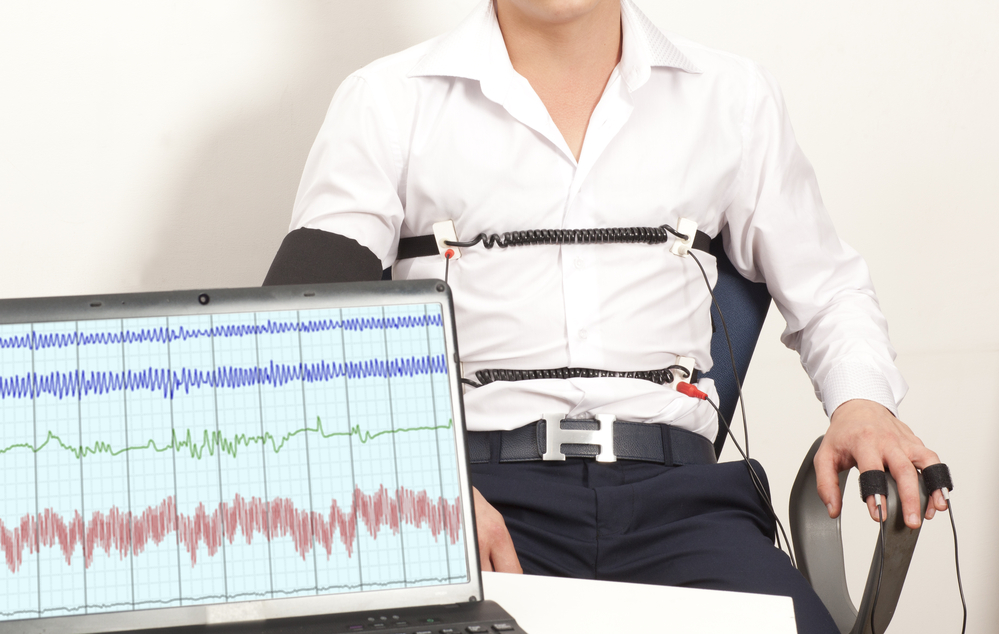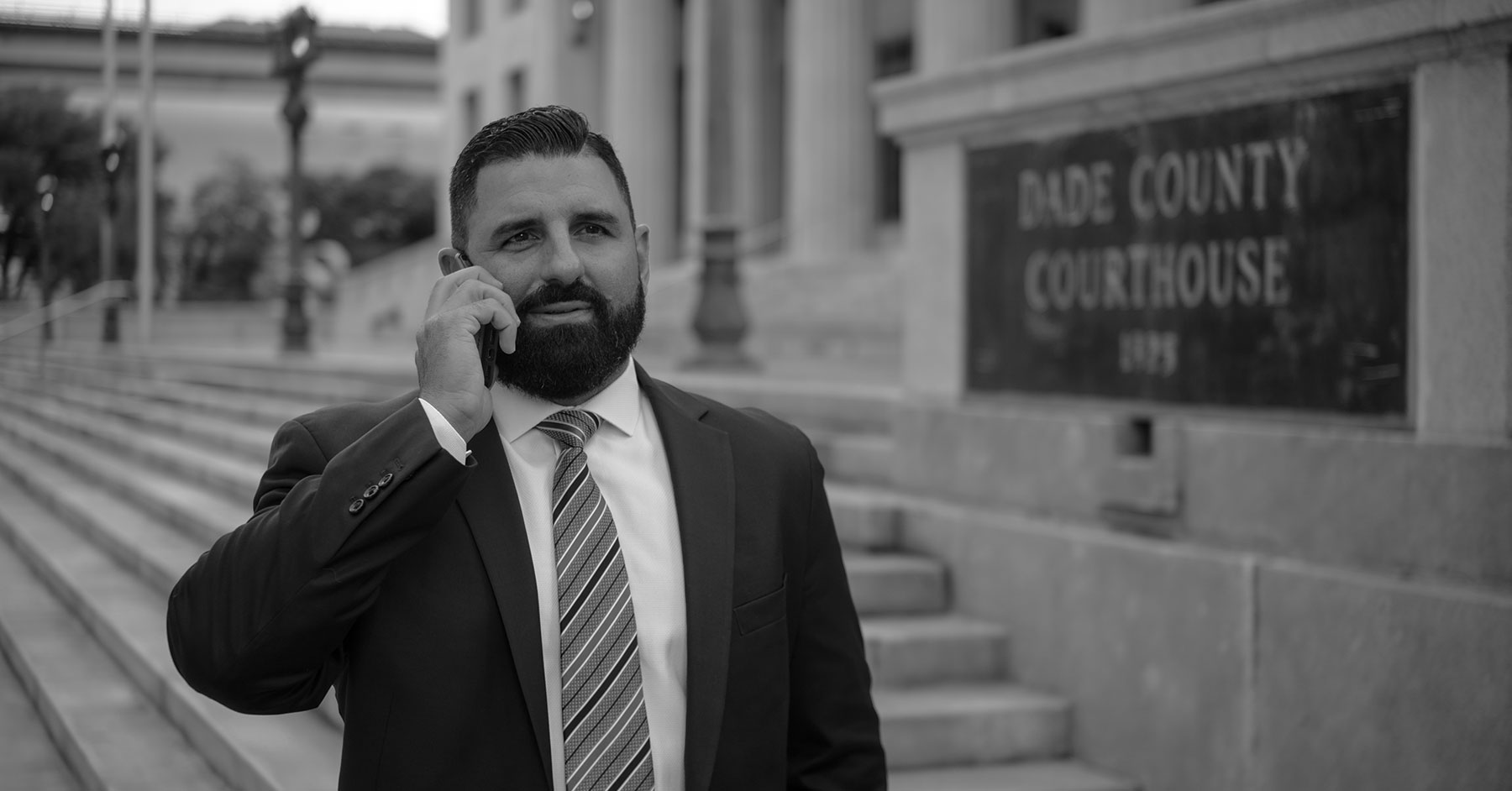Prove Your Innocence Through A Lie Detector Test In Florida

Criminal investigations are stressful for everyone, especially for those who find themselves on the wrong side of the law. They may begin to lose faith in everything: themselves, officers involved with the investigation, or the law itself.
A lie detector test has been a popular way to show someone's guilt or innocence when they're faced with criminal charges. It seems like such an easy approach. Just strap in and answer some questions - but it isn't that simple.
The results from these machines aren’t always accurate. There are many different external factors involved, including how much the accuser knows about the crime, as well as their own beliefs on whether something is true or false. We all know about cases where people were coerced into confessions or convictions that turned out not to match their actual guilt; this makes sense why anyone would feel like the walls are closing in on them during an interview room session with officials.
Polygraph And Crime Investigations
Lie detector tests are frequently used by law enforcement agencies in criminal investigations. In fact, many detectives feel that they’re valuable tools for finding out if a suspect is either lying or telling the truth, especially when there's strong evidence against them and an innocent person might be looking at decades in prison without parole.
The polygraph test is not always enough to convince a prosecutor that you're innocent. A defendant who passes the polytomy may still face charges, even if they've been cleared by their own defense team or an outside agency like private consulting firms specializing in this field of investigation.
How Does A Lie Detector Test Work?
Polygraph exams measure a set of functions in your body to see if you're telling the truth. These include heart rate, blood pressure levels as well as skin conductivity or other types like respiration rates which all play an integral role when it comes to deciding if someone could be lying about something important on their mind at any given moment without even realizing what they're doing - aka autopilot behavior.
Using Polygraph Results In Court
The Florida Supreme Court has ruled that polygraph tests are admissible in court, but only if both sides agree to admit the results as evidence. If an individual is convicted of sex crimes against children they may be required by law take one such exam before being released from prison; however these examinations cannot lead directly toward punishment like jail time does - instead its sole purpose seems focused on therapy alone. The polygraph test is not an accurate way to determine if someone has committed a crime. The US Supreme Court has also noted that the accuracy of these tests are questionable.
However, your criminal attorney can use any favorable test results when negotiating for a plea deal or dropping the charges. During pre-trial process and throughout trial proceedings you fight to be free from these misunderstandings.
Post-conviction sex offenders & Polygraph Testing
One of the most common instances when polygraph testing is required in Florida is for convicted sex offenders as part of Post-Conviction Sex Offender Testing (PCSOT). This specialized type of polygraph examination is designed to assess the risk and compliance of sex offenders after their conviction. PCSOT generally falls under two main categories:
Maintenance Polygraph: This type of polygraph test assesses the sex offender's compliance with treatment programs and supervision requirements over a specified period of time. It helps probation officers and therapists determine whether the offender is adhering to the conditions of their release and if they are making progress in their rehabilitation.
Sexual History Polygraph Examination (SHPE): The SHPE is used to gather detailed information about the offender's lifetime history of sex offenses and sexually deviant behavior. This examination is crucial in helping probation officers tailor supervision and treatment plans based on the offender's past patterns, choice of victims, and other relevant factors.
The purpose of these tests is not only to monitor the offender’s behavior but also to assess whether they still pose a significant risk to the community. This information can play a crucial role in the ongoing supervision and management of sex offenders.
When Not To Take A Polygraph Test
Polygraph tests are frequently used by law enforcement to establish guilt or innocence. However, when an accused takes a polygraph without first consulting with an attorney, they may find themselves subjected at police headquarters and questioned for hours on end until finally being released from the premises after reaching some sort of conclusion about what happened in connection with any particular incident that led up their cuffs stopping you.
Why You Shouldn’t Take A Police-led Polygraph
Law enforcement might use a lie detector test to interrogate you. Under distress, a polygraph is likely to pick up those physiological signs that suggest guilt. If the exam isn't conducted by a professional user, then it can cause one fail without proper procedures and safety checks being implemented during testing
The police investigator's job is to gather evidence and they won't necessarily be concerned with proving your guilt or innocence. You should remember that even though you are legally required to submit for a polygraph test during criminal investigation, it doesn't mean anything unless the information gathered can help them make decisions about the case.
When being questioned by law enforcement, it's important to keep in mind that any response can be recorded and used against you. This means increased perspiration due not only from fear or worry but also excitement.
Can You Volunteer to Take One?
When you volunteer to take a polygraph test, it's important that your innocent mindset is intact. Even if the results are not always accurate (and they can't be), being interviewed by law enforcement could still put someone in an unfavorable light and make their life more difficult than necessary for something there was never any evidence against them.
Lie detector tests are often requested by those who have nothing to hide, but this can lead them down an expensive path. A better idea is to hire an independent criminal defense lawyer in Florida and let them defend your innocence.
What If You Want To Take A Lie Detector?
Whether or not you decide to take a lie detector test, your attorney will be able to make the best decision for you. It is essential that before taking this step forward in either direction. Consulting with legal counsel has always been recommended by many experts as well as wrongful convictions across America who have personally experienced what happens when there isn't adequate time spent on finding true fractures behind arguments against charges being filed at all stages levels of proceedings.
Nothing is more unsettling than realizing you may be under investigation, but we are here to help. Call us at (305) 403-7323 or contact us online today for a confidential consultation about your case.

